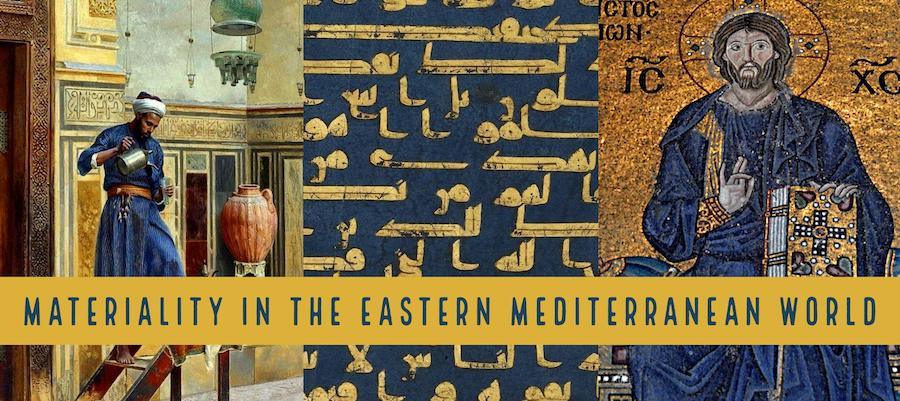Materiality in the Eastern Mediterranean World, Central European University via Zoom, May 28–29, 2021
The Center for Eastern Mediterranean Studies (CEMS) at Central European University (Vienna/Budapest) is proud to announce the 7th International Graduate Conference on “Materiality in the Eastern Mediterranean World”, Vienna, 28-29 May 2021. The conference will provide a forum for graduate and advanced undergraduate students working on the Eastern Mediterranean to present their current research, exchange ideas, and develop scholarly networks.
The aim of this conference is to explore how a turn towards materiality can help us to understand the Eastern Mediterranean world. The conference seeks research that investigates the role of physical “things” in history. How are material culture, technology, and the physical environment entangled in historical processes? How has the physical world shaped and been shaped by forms of social life in the Eastern Mediterranean? How have ideas and emotions been put into practice and how have they been embodied in material objects (e.g. artifacts, relics, and manuscripts)? How could materiality in the Eastern Mediterranean differ from other regions?
Keynote lecture by Charlie Barber, May 29, 6:30 pm: Formlessness and Potentiality: Reflections on Art and Materiality in Fourteenth-Century Byzantium
The first part of this paper will offer some readings of the definitions and use of Matter in a variety of writings, primarily from the early-fourteenth century. Formlessness, Potentiality, and Harmonics will be discussed as aspects of Materiality. Works by George Pachymeres and Theodore Metochites will be a particular focus. The second part of the paper will propose a reading of the use of marble in Metochites' church of the Holy Savior in Chora. I will argue that the display of marble in the church was more than a demonstration of material resources. Its presence speaks to the very identity of the monastery.
Charlie Barber is the Donald Drew Egbert Professor of Art & Archaeology at Princeton University.
